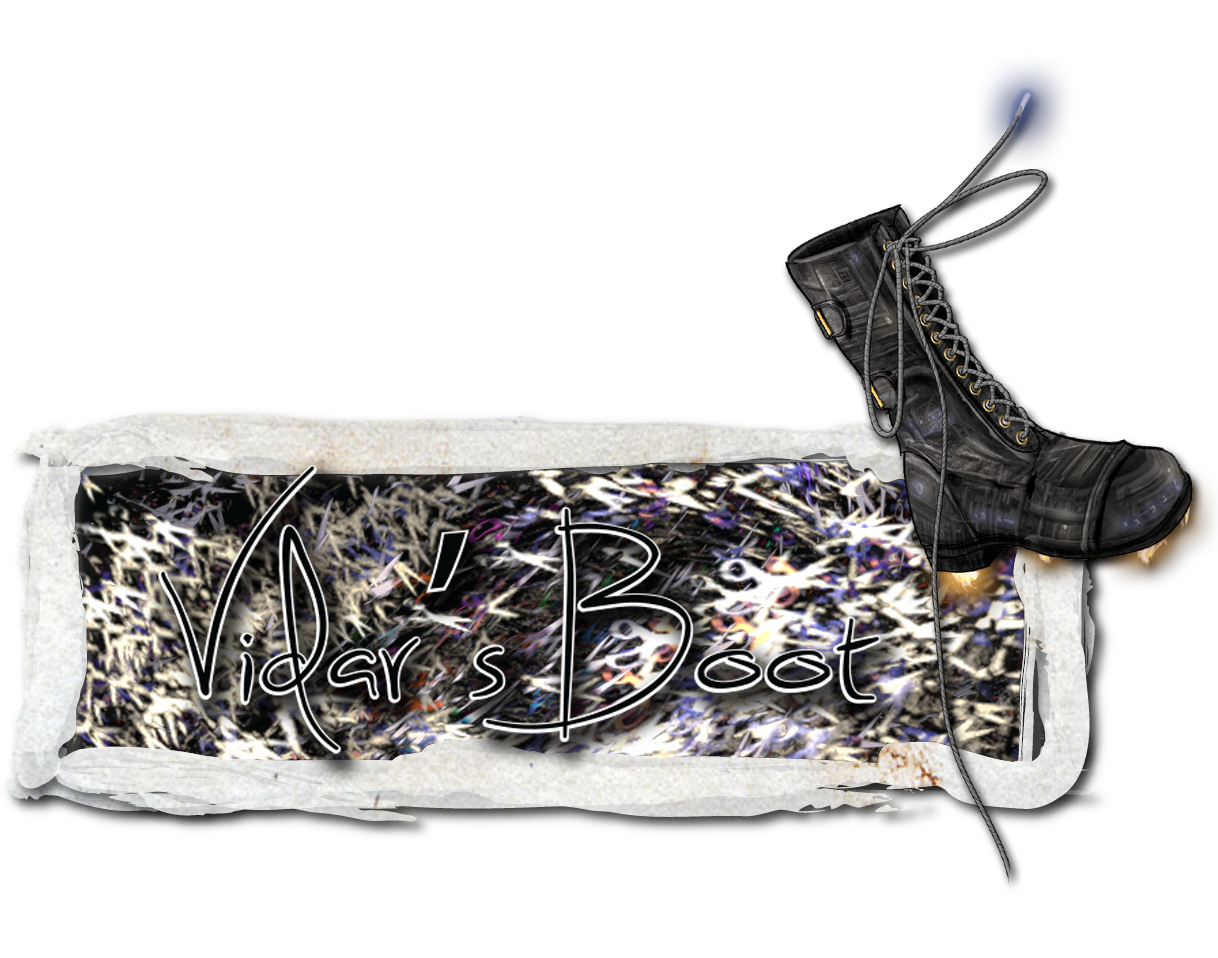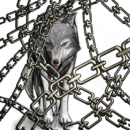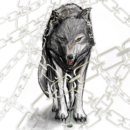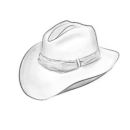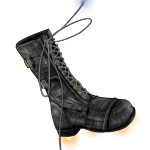– 1 –
At the edge of the Lethal Magnet School for Wayward Youth, where once the great engineering building rose, Mr. Gulley commissions a very large boot.
There is a world-devouring wolf in his basement, but he is not defeated.
His own son has attacked him; bit through his shoulder —
But he is not dead.
“I will make a boot,” whispers Mr. Gulley, as if in fever; and this thing he does.
– 2 –
Principal Goethe pleads on the TVR for assistance. He warns of the impending freedom of the wolf.
For political reasons, relating to funding and potential liability, he does not explain that the wolf is currently in the basement of the owner of his school.
He simply begs.
He isn’t dead yet. He isn’t half-eaten yet. That happens later.
He’s still alive when this happens.
And shoe leather begins to flow in from all around the world.
“Bombs would not stop the wolf,” explains Mr. Gulley, in an international broadcast. “We will gladly take bombs. We will gladly integrate them into the fabric of our grand design. But this is only because I personally rather like bombs.”
He does not explain his awful wound. He lets the press imagine. They come up with many theories. “Attacked by a savage ex-President who wants the wolf’s power for America” is probably the best.
“I have dim and distant hopes for bombs,” he says, “And the scientists of my Lethal Magnet School, well, they enjoy them, but bombs will not stop the wolf.”
A crack team of astronauts would not be able to stop the wolf.
Principal Goethe explains this with a flip chart on his amazing televisual radio broadcast.
He illustrates how a crack team of astronauts might fly to the wolf, carrying a nuclear payload. He shows how they would use digger robots to make a shaft deep into the fur of the wolf. They would drop the nuclear arsenal under the wolf’s skin and fly away.
But this would not stop the wolf.
“What of Bibury?” asks a nosy reporter, but Goethe just shakes his head.
“Skoll was young,” says Goethe. “Skoll was new.”
“But the bombing of Bibury still killed hi—”
“Skoll,” says Principal Goethe, “was just a puppy. Fenris is cunning, sharp, and ruthless. Fenris is older than the hills.”
MacDuff the Crime Hound — actually, MacDuff III, the original Crime Hound having died in the incident with the fire bees, and his daughter having retired after facing a relentless slew of sexist criticism over the course of her career — teaches children wolf safety.
“If a wolf comes to eat you,” he says. “Tell the wolf NO!”
MacDuff the Crime Hound, III, isn’t really expecting that this will stop the wolf. Not even a small one!
He’s just trying to give the children a sense of power over their own lives.
Against the wolf the prayers of the world are futile. No one hears them, except maybe St. Saul, St. Peter, and St. Bethany, and they have no real idea, even if they can hear them, what they could possibly do.
Threats are useless too.
The post office occasionally tries to deliver hate letters, threat letters, and anthrax to the wolf, but here the post office is helpless. They deliver some to the north pole, but this is an error. They visit to the places below Lemuria, where the post office ought not go; this proves equally incorrect. They do not know where the wolf lives so they cannot deliver.
They only know that one day the wolf will come.
A special subsidiary of the Lethal corporation finally perfects a wolf-killing virus made out of the ashes of dead camels and the phoenix. It is administered by remote injection while Mr. Gulley stands back, face drawn tight with a mix of emotions. In the end it only makes Fenris hiccup, smolder, and sulk.
So people rely on their shoes.
“I’ll depend on our shoes,” says Mr. Brown, of Sussex.
“That’s right!” says his daughter Susan.
She takes off her shoes. She brandishes them at the sky in defiant fury. “SHOE!” she yells. “SHOE!”
She is very young.
It is a young person’s yell, in the face of a world of wolves.
And bit by bit people send their shoe leather in to help with the construction of the boot. All across Europe; even Asia, Africa, the Middle East — they send their shoes to the plucky children of the Lethal Magnet School for Wayward Youth.
Only in America — where the signs of trouble and apocalypse have been oddly few and patriotic reverence for hypothetical ravenous ex-Presidents runs high — is the project seen as a special interest and greeted with disdain.
He builds a giant boot, does Mr. Gulley, on the Lethal campus he has made; but he faces the same problem that Hans had lain out for Joffun, so many years ago:
But who could stomp such a boot?
The shoes pour in.
– 3 –
Edmund wakes in his hospital bed. He clutches at the sheets and blankets. He pulls them over him.
He remembers.
He’d tried to kill his father, he thinks. Had been killing him. He had been eating him. He’d gotten so very close to it and it wasn’t his conscience that had stopped him cold.
Fenris had howled, and the wind had blown, and the walls around Edmund’s heart had broken down —
The world had poured into him. In, and in, and in; it was an overpowering chaos, formless, incomprehensible, too strong, too real, and too wild for him to shape it into sense.
It must have been hours ago. Days.
He remembers lights, and sounds. They were not parseable. He remembers trying to hide from the awful, mind-breaking sound of his own screams.
His arms and legs are pasty, thin, and weak. They are covered in goosebumps. This puzzles him.
It had been summer, hadn’t it?
Hadn’t it been warm?
He sits up.
He wobbles.
He has a distant, swimming memory of his father’s face.
He frowns.
There is a stone box on a table beside him; that, and flowers, and a card. He picks up the box. It looks like his old wooden heart-box, but he can’t feel his heart inside it. He rattles it; his vision whitens, and he can almost then feel the dizzying stutter of a pulse.
He nods. It is his heart.
He can hardly feel anything at all. He is numb and dispassionate all through him, he with his heart in a box of stone. Even the hunger for human flesh inside him is distant, now, and weak.
He reads the card. He puts it aside. He sighs.
“Some son you are,” he mutters to himself.
It is really embarrassing. He remembers assuring his father that he was not a wayward child. But who has had the last laugh now?
. . . possibly it was still Edmund.
His father’s shoulder had been extremely good eating. He flutters his eyes closed for a moment, overcome by joyful memory, and then he pushes the gift and treasure of that memory down into his heart’s stone box.
He unplugs his IV and walks over to the door. There are a selection of white hats and coats hanging there. He takes his favorite hat, puts it on, adjusts it. He stares at the coats for a while.
“I wonder if it’s cold,” he says.
He stares at his skin.
“I am fairly sure that I am really, really cold,” he says.
He puts on a coat. He puts his heart in his pocket.
“I wonder if you can set people free,” Edmund says, “without killing and eating them.”
He is a god of freedom. He is also a cannibal. These things happen.
He scratches at his hair.
He wanders out.
– 4 –
He eats hardly anybody in the hospital. Not the doctors. Not the nurses. He needs food. He needs strength. But he’s not a monst —
Well, he is a monster.
But he sticks to raiding the morgue and the brain-dead, and one man —
He has no justification for believing this.
It is an excuse. He should admit to this; only, if he admits to this, he might lose control and eat everybody. But —
One man that he thinks that it seems like nobody will actually miss.
– 5 –
Edmund slips back to campus. He finds a new room. He sleeps inside it. He wakes and finds they’ve locked it and bound it up with chains.
